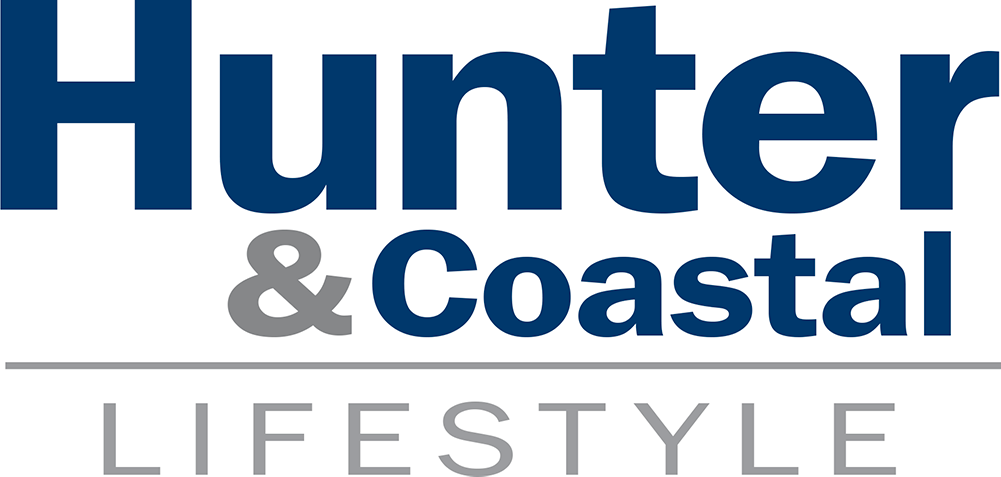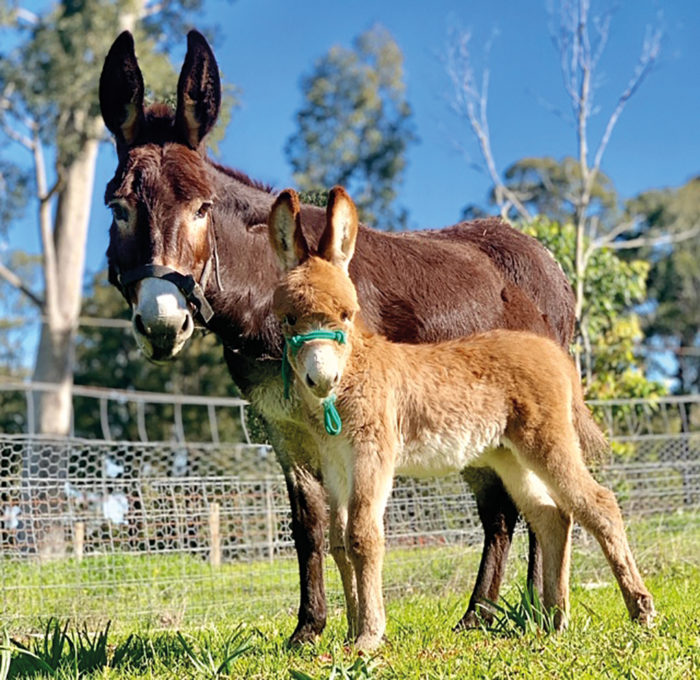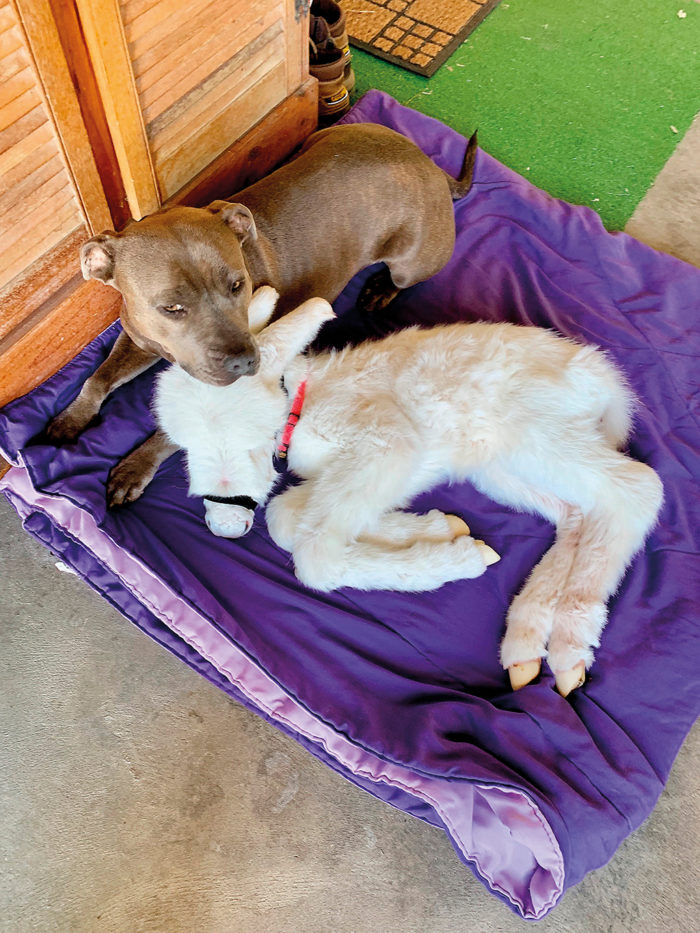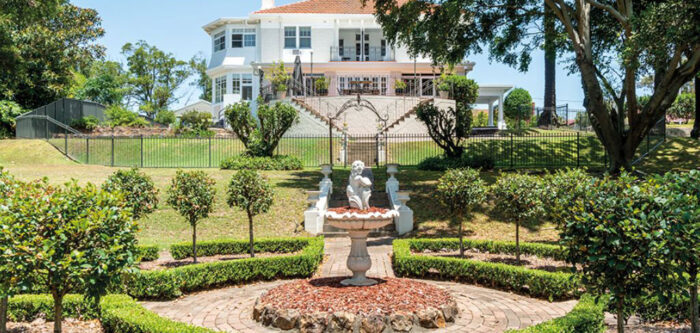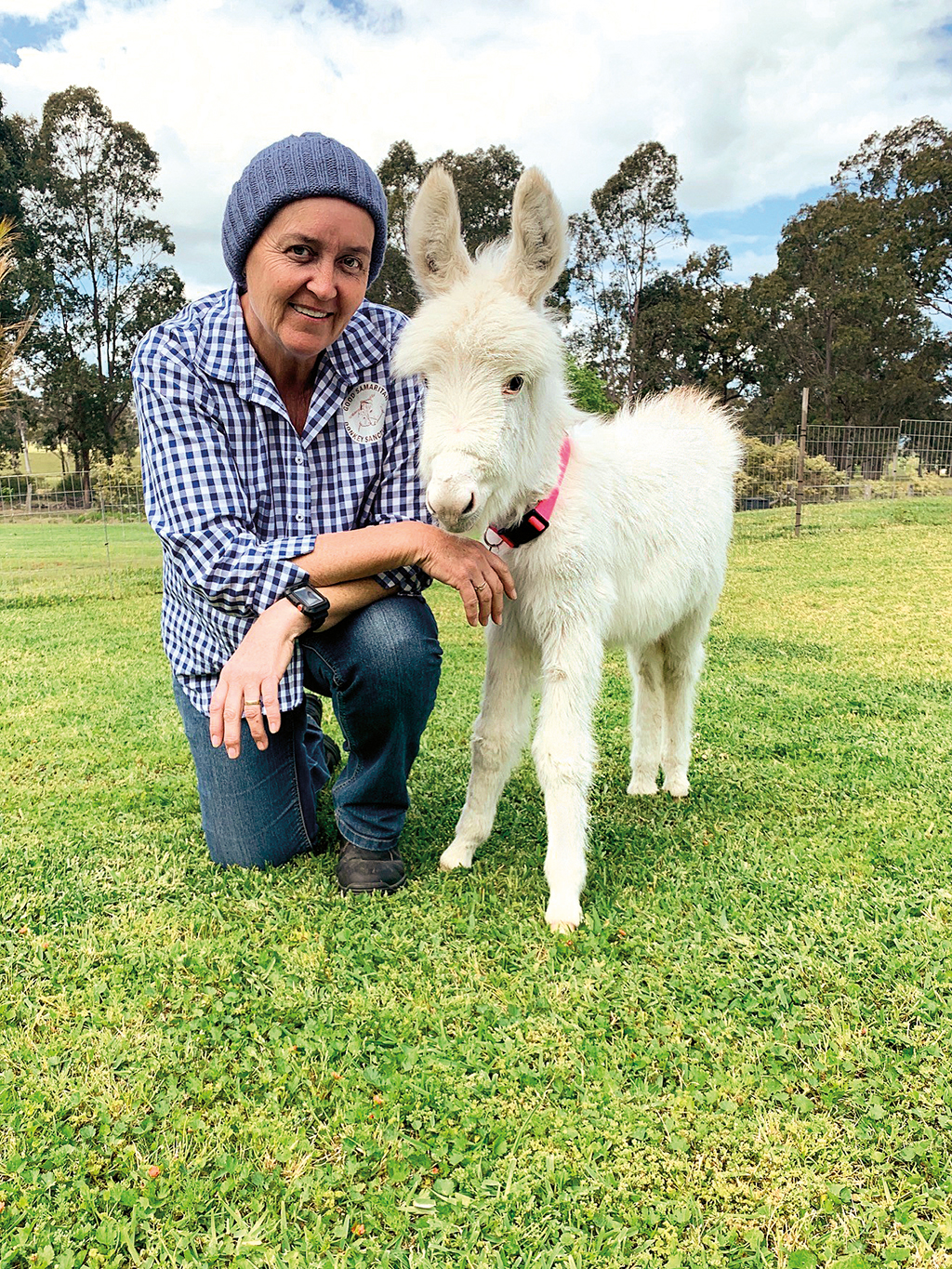
Land of donkeys
A committed group of volunteers has created a very special sanctuary for more than 80 donkeys. Meet MayMay, Baz and their hoovey friends.
What makes you get up at 4am in the morning and put in 16 hour days? “We love donkeys,” is Sandy Kokas’ simple answer to that question. She is the primary donkey manager and carer at the Good Samaritan Donkey Sanctuary near Clarence Town. Caring for donkeys is a bit of a Kokas family tradition and Sandy learned the ropes from her mother Jo Anne. A registered charity was formed in 1991 and the donkeys became the owners of the Sanctuary lands. “Every donkey is very different, every donkey has a personality, and every donkey has their own history. But they are all very sweet, and they all have names,” Sandy says.
Most of the 80 plus donkeys are in the main herd and get to roam over 40 acres of gently rolling hills. There is a headcheck every morning and the donkeys know they are expected to turn up for breakfast so Sandy can make sure they are all well and not a single animal is missing. “Once a new donkey arrives, we make sure to assess them and put them through a training program. Donkeys are very intelligent and love having a routine. It is heartbreaking though how many of them have been mistreated. We often respond to calls from police or RSPCA and quite a few of our donkeys are in rather bad shape when they first come here,” she says. Donkeys can get quite old, up to about 55 years of age and it’s no wonder, that some of the donkeys at the Sanctuary suffer from the ailments that come with advancing years. “There is generally nothing wrong with them. But they are in their mid 30s to late 40s and they have arthritis or dental issues and they just can’t cope with the hills that the main herd is grazing on and need a bit of special care.”
And then there’s the ICU where Bruno, Jacko, Edie and Jessica are currently being treated. “When their hooves get soft and they are playing silly buggers they can bruise their hooves and that can turn into an abscess. These guys have been playing and probably have tripped or gallivanted around and stepped on a stick or a stone and given themselves a foot abscess.” There is a second ICU where the deaf and blind donkeys are living out their lives; and where donkeys in need of 24 hour surveillance, drips or operations are being treated.
But there is also six-week-old Baz. At the time of my visit he was the youngest resident of the donkey sanctuary. To call him a heart throb would be a serious understatement. You might even get up close and personal with him at the kissing booth at one of the Sanctuary’s fundraising events.
Most recently, Baz has had some serious competition in MayMay, an orphan donkey foal born on a particularly cold August night. Unfortunately, MayMay was rejected by her mother. “We had to immediately take her away, for the sakes of both the mother and foal,” says Sandy. MayMay was whisked away to Sandy’s home to be dried and fed. She is still being bottle fed every hour, day and night, with a costly, specially formulated milk. To keep her warm at night, she sleeps in Sandy’s bathroom. The additional cost to the Sanctuary is immense: there is the cost for the special milk but also the need for plenty of puppy pads, blankets and towels. And then there is the exhaustion that comes from getting up at all hours of the night or the need to hand wash some of the blankets that are too big to fit into a standard washing machine. As much as the Sanctuary team love little MayMay, she has arrived at a time when finances are already under a lot of strain from the effects of the drought.
Desperate for donations
“The price for the ruffage feed that the donkeys need has been going through the roof. And many suppliers have set limits on purchases so we can only buy 5-10 bales per day. Unfortunately we go through a minimum of 20 bales per day, so our store is quickly diminishing and we are afraid we won’t be able to stock up over summer for next winter,” Sandy explains. She is desperate for donations and for suppliers who might give her a good price. But with so many farmers in the same dire situation there is little chance of that. But then she looks at the main herd again: “They are all happy. They just wander around and do whatever they want to do,” she says thoughtfully. And that’s why Sandy will get out of bed again at 4am the next morning and in the middle of the night too.
For more info go to https://donkeyrescue.org.au/ Donations are highly welcome.
Read more in the Summer issue of Hunter&Coastal Lifestyle Magazine.
Story by Cornelia Schulze, photography Sally Kokas
